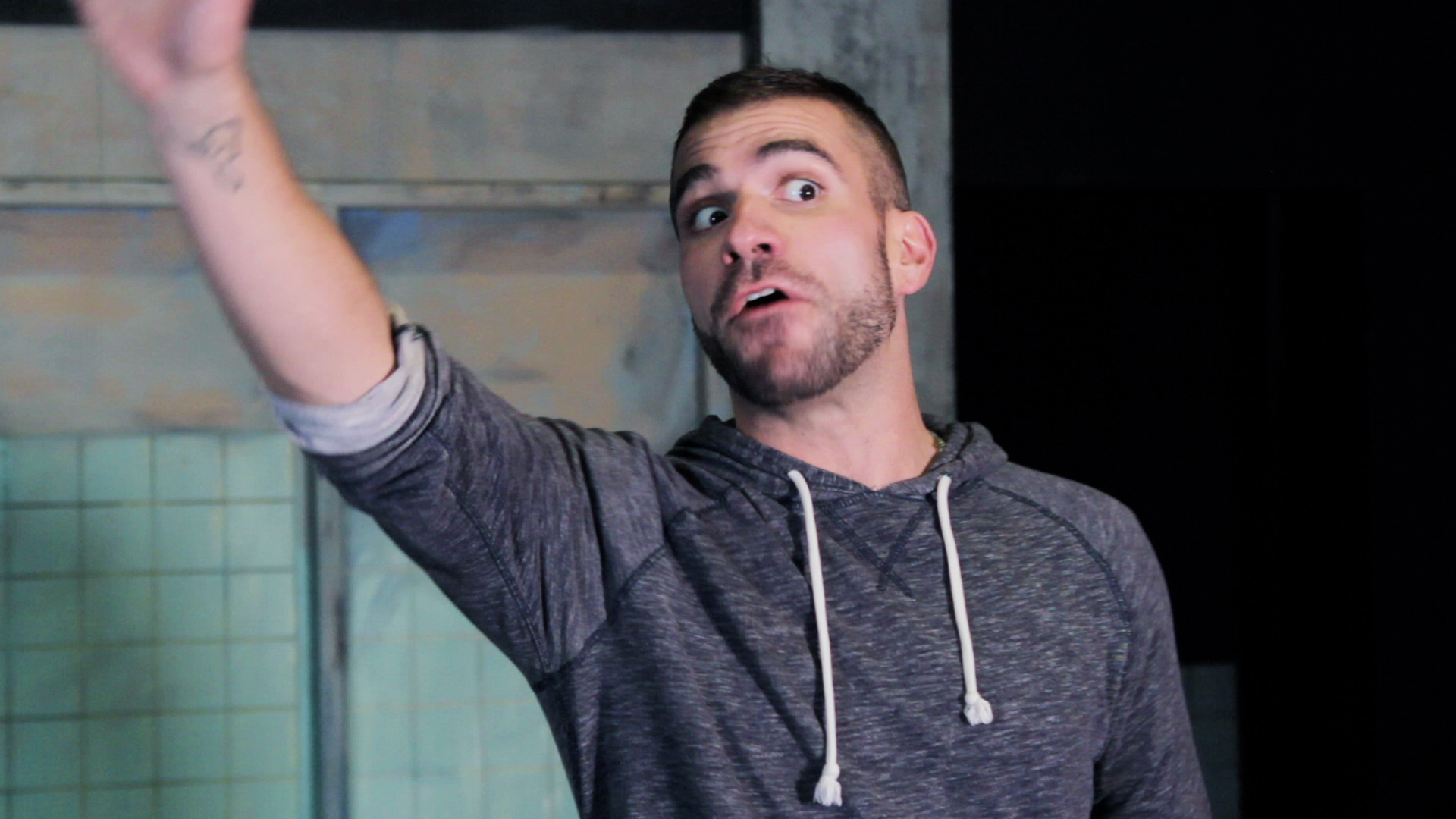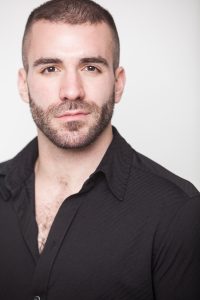
West Hollywood resident Adam Ziv is bringing his passion project, “Laughing Wild,” to the stage. Like most artists, the multi-hyphenate has been entertaining audiences almost his entire life and describes how he became a performer.
“I was five years old when I was first on stage. I was a classical pianist in New York. I grew up in Hell’s Kitchen and later my family moved to Chelsea. I started acting when I was seven or eight in plays and such. Ever since I started, every few years I take a break from acting and do something else to recharge. Ultimately, acting is playing other people and I feel that going out and meeting a bunch of people is just as good homework as taking an acting class sometimes.
“I gradually moved into dance eventually. I came to L.A. in 2014 to focus on acting after doing a bunch of off- and off-off Broadway work, mostly repertory theater like Chekhov, Shakespeare, Euripides. I ended up getting a lot more dance work than I expected. Now that my body is starting to catch up with me a little bit and injuries are harder to recover from, I’m starting to focus on acting again. This project, in particular, is one I’ve been wanting to do for over ten years. It’s pretty surreal. I don’t think it’s going to hit me until it’s in the theater.”
Some people are fortunate to have THAT moment when they decide where they need to go in life and Ziv remembers his epiphany and those that inspired him along the way.
“The day I first decided I wanted to become an actor was when I first saw “Lawrence of Arabia” on the big screen at the Ziegfeld Theatre in New York. I was 11 or 12. I went with my babysitter, who I’m still in touch with. We’re still good friends. I was just blown away by the grandeur of it. Peter O’Toole and that movie were big inspirations to me. Gray Oldman’s been one of my favorites since day one. He’s such a chameleon. Meryl obviously. Sean Penn is a big idol of mine. Daniel Day-Lewis, Kate Winslet, Cate Blanchett. What inspires me as an actor are people who can show you something different every time you see them.”
Even if you didn’t have an epiphany like Ziv did, we all have people who helped us become the people we are today.
“My piano teacher of 25 years, Ming-Fung Fung, really taught me work ethic. She always called me out when I didn’t do the work and it kept me honest. I’m a teacher now, and we can always tell when the work hasn’t been put in. As a student, you think you can fool them, but you can’t. My mom has been by my side since day one. She’s gone to every single show of mine, which has been hundreds. And there’s Tim Vasen, a teacher of mine at Princeton who died tragically two years ago. The production is dedicated to his memory. [“Laughing Wild” director] Lovell [Holder], [co-star] Dominique [Salerno] and I all studied with him and were all directed by him. He actually directed me professionally in New York.
“Where my piano teacher kept me honest with my work, Tim kept me honest as a person. He guided me to a place where, like my character in ‘Laughing Wild,’ I went from a place of seeing everything so negatively to seeing things in a more positive way. He was a big life teacher for me. He had such a huge impact on so many people.”
Though Ziv admits that “Laughing Wild” isn’t easily categorizable, it’s a show that manages to touch on many issues that are just as prescient today as they were in the 80s.
“‘Laughing Wild’ is totally bonkers. It was written in 1985 by Christopher Durang who won a Tony for Best Play in 2013 for “Vanya and Sonia and Masha and Spike” starring Sigourney Weaver and David Hyde Pierce. He’s also known for irreverent, dark comedies like “Sister Mary Ignatius Explains It All for You” and “The Marriage of Bette and Boo.”
Growing up gay in a Catholic environment, Durang’s work often tackles these issues. It’s a very irreverent, very dark look at the effects of religion, prejudice, homosexuality, the stigma of mental illness. It’s hard to pin down what the show is about. The play gets its title from a Samuel Beckett quote, “laughing wild amid severest woe.” It’s about two characters in the 80s trying to overcome their individual handicaps known just as The Man and The Woman. The Woman lives in this manic place while The Man lives in this subdued, repressed place. They’re essentially trying to meet in the middle this entire time but just can’t quite do it. They’re using the philosophy of laughing wild to overcome their individual woes. It’s a very cathartic piece.”

Audience members project their own feelings and experiences in anything they watch. A smart show that tackles a wide range of issues can be interpreted in many ways while still being relatable on many levels.
“When we did our original reading back in January for donors and collaborators, about 80% of the crowd left saying, ‘that was so funny’ while the other 20% left saying, ‘that was so upsetting.’ The play really does take you everywhere and makes you feel just about everything you want to feel. It’s funny. It’s crass in parts. It’s smart as hell. It’s sad. It’s about how you pick yourself up and how that’s different for every individual. It’s essentially a piece about the resilience of the human spirit. I think we all need to be reminded of that.”
For any project to be successful, it must be relatable. This starts with the characters being relatable to the actors.
“I identify so much with The Man. He talks about gradually accepting his sexuality; about how it made it angry at first, but how he’s come to accept it and take pride in it. I saw myself in him. I think actors always see themselves in the roles they choose for themselves. I’m excited that people will finally see this story that helped me with my coming out process. I came across this script when I was coming out. I hadn’t really gotten there yet and when I read the script, I thought, ‘this is me.’”
Though written hundreds of years ago, Shakespeare’s works are timeless because the themes are universal. Arthur Miller’s rebuke to McCarthyism in the 1950s, ‘The Crucible,’ can easily substitute current events in place of the Salem witch trials. ‘Laughing Wild’ is no different.
“This script was written in 1985. It’s 33 years old. You change a few references here and there – like maybe change Phil Donohue to Dr. Phil – and it could easily be right now with the political and social conversations they have. It talks about the electoral college. It talks about the history of the gay rights movement. It talks about mental health. People might be surprised about how timely this script is. It’s timeless and timely. We’re giving people a chance to laugh wild during the severest woe of today.”
“Laughing Wild” is currently in its initial limited engagement at Los Angeles Theatre Center at 530 S. Spring St. in downtown L.A. There will be one performance tonight at 8 p.m. and performances tomorrow at 3 p.m. and 8 p.m. Tickets can be purchased online here.
